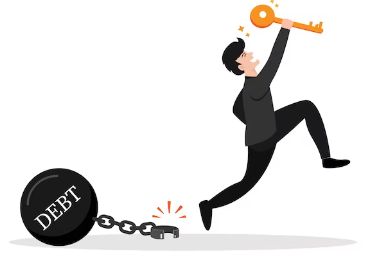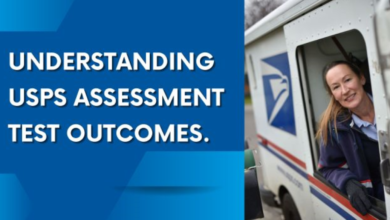Breaking the Chains: How to Escape the Grip of Education Loans

Are you drowning in the sea of student debt? Do you feel like you’re stuck in a never-ending cycle of loan repayments? Well, you’re not alone. Many people are struggling to break free from the chains of education loans. But fear not, because in this article, we’ll explore some practical steps to help you escape the grip of student debt and regain your financial freedom.
Assessing Your Loan Situation
The first step in escaping the grip of education loans is to assess your current loan situation. Take stock of all your loans, including their interest rates, repayment terms, and outstanding balances. Understanding the full extent of your debt will help you formulate a plan to tackle it head-on.
Exploring Repayment Options
Did you know that there are several repayment options available for education loans? From income-driven repayment plans to extended repayment terms, there are ways to tailor your repayment plan to your financial situation. Explore these options carefully to find the one that best fits your needs.
Budgeting for Loan Repayments
Budgeting is key to managing any type of debt, and education loans are no exception. Take the time to create a budget that includes your loan repayments as well as your other expenses. By sticking to a budget, you can ensure that you’re making progress toward paying off your loans without sacrificing your other financial goals.
Seeking Financial Assistance
If you struggle to make your loan payments, don’t hesitate to seek financial assistance. There are various resources available, including loan deferment or forbearance, which can provide temporary relief from your repayment obligations. Additionally, you may qualify for loan forgiveness programs based on your profession or income level.
Consolidating Your Loans
Consolidating your loans involves combining multiple education loans into a single loan with a fixed interest rate. This can simplify your repayment process and potentially lower your monthly payments. However, it’s important to weigh the pros and cons before deciding if loan consolidation is right for you.
Refinancing Strategies
Refinancing your loans involves taking out a new loan with better terms to pay off your existing loans. This can result in lower interest rates and monthly payments, saving you money in the long run. However, refinancing may not be suitable for everyone, so be sure to research your options carefully. It is recommended to look for legalised money lender in Singapore for your refinancing options.
Generating Additional Income
One effective way to accelerate your loan repayment is to increase your income. Whether it’s taking on a part-time job, freelancing, or starting a side hustle, generating additional income can provide you with extra funds to put towards your loans. Get creative and explore different opportunities to boost your earnings.
Exploring Loan Forgiveness Programs
Did you know that there are programs that offer loan forgiveness for certain professions or public service work? These programs forgive a portion or all of your education loans in exchange for a commitment to work in specific fields or underserved communities. Explore if you qualify for any of these programs to lighten your debt burden.
Embracing a Frugal Lifestyle
Finally, embracing a frugal lifestyle can help you free up more money to put towards your loan repayments. Cut back on unnecessary expenses, cook at home instead of eating out, and look for ways to save on utilities and other bills. Every little bit adds up and can make a significant difference in paying off your loans faster.
Now that you have a roadmap for escaping the grip of education loans, it’s time to take action and regain control of your financial future. Remember, breaking free from student debt requires determination, discipline, and a willingness to explore all your options.
Frequently Asked Questions
1. Can I negotiate with my lender to lower my interest rate?
Yes, it’s possible to negotiate with your lender to lower your interest rate, especially if you have a good repayment history or if interest rates have decreased since you took out the loan.
2. What happens if I default on my education loans?
Defaulting on your education loans can have serious consequences, including damage to your credit score, wage garnishment, and even legal action. It’s important to communicate with your lender if you’re struggling to make payments to explore alternative repayment options.
3. Are there any tax benefits for repaying education loans?
Yes, there are several tax benefits available for repaying education loans, including the student loan interest deduction and the tuition and fees deduction. Consult with a tax professional to determine if you qualify for these deductions.
4. Can I transfer my education loans to another lender?
Yes, it’s possible to transfer your education loans to another lender through a process called loan refinancing. However, be sure to carefully consider the terms and conditions of the new loan before making the switch.
5. How long does it take to pay off education loans?
The time it takes to pay off education loans depends on various factors, including the amount of debt, interest rates, and repayment terms. By following a strategic repayment plan and making consistent payments, you can typically pay off your loans within 10 to 25 years.
Are you looking for a Bedok money lender to help fund your educational needs? Read this guide to learn more.







